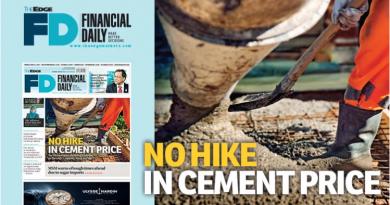Business leaders optimistic of Malaysia’s economic prospects
KUALA LUMPUR: Top business leaders in Malaysia are optimistic of their operating environment and the nation’s economic prospects, according to a recent survey by Monash University Malaysia and CPA Australia.
Respondents, who comprised 416 chief executive officers (CEOs) and senior managers, also viewed the global economic environment as moving forward towards greater stability.
However, the trade war rhetoric between US and its major trading partners remains a cause of concern, as a full-scale trade war will dampen global growth and business sentiment in the region and Malaysia.
The “Business Sentiment 2018” survey said to mitigate these risks, Malaysian firms are intensifying their market opportunities within the domestic economy and expanding their operations in Asean and other Asia Pacific markets.
Their optimism, according to the survey, is attributed to the various government policies and strategies to increase disposable income of consumers via lower taxes, removal of tolls on road use and increased spending on major infrastructure development.
“Strong performance of firms is also attributed to greater adoption of digital technology and the transition towards business models underpinned by Industry 4.0.
“Interestingly, small and medium sized firms are embracing these technological developments quicker than large firms. Hence, these technologies are enabling the small and medium sized firms to be more agile and adaptive to the changes taking place in the global economy,” it added.
The respondents also proposed several initiatives to nurture and sustain a sound, agile and resilient national innovation ecosystem.
These include increasing the supply of creative talent to enable firms to enhance process improvements, product development and expand market reach.
They also called for strengthening the engagement between universities, industry and government to ensure educational programmes, training initiatives and R&D activities continuously raise the innovative capacity of firms.
Respondents said greater incentives are needed for SMEs to access technology, expertise, R&D and other business support to facilitate their move up the innovation value chain.
Source: NST


